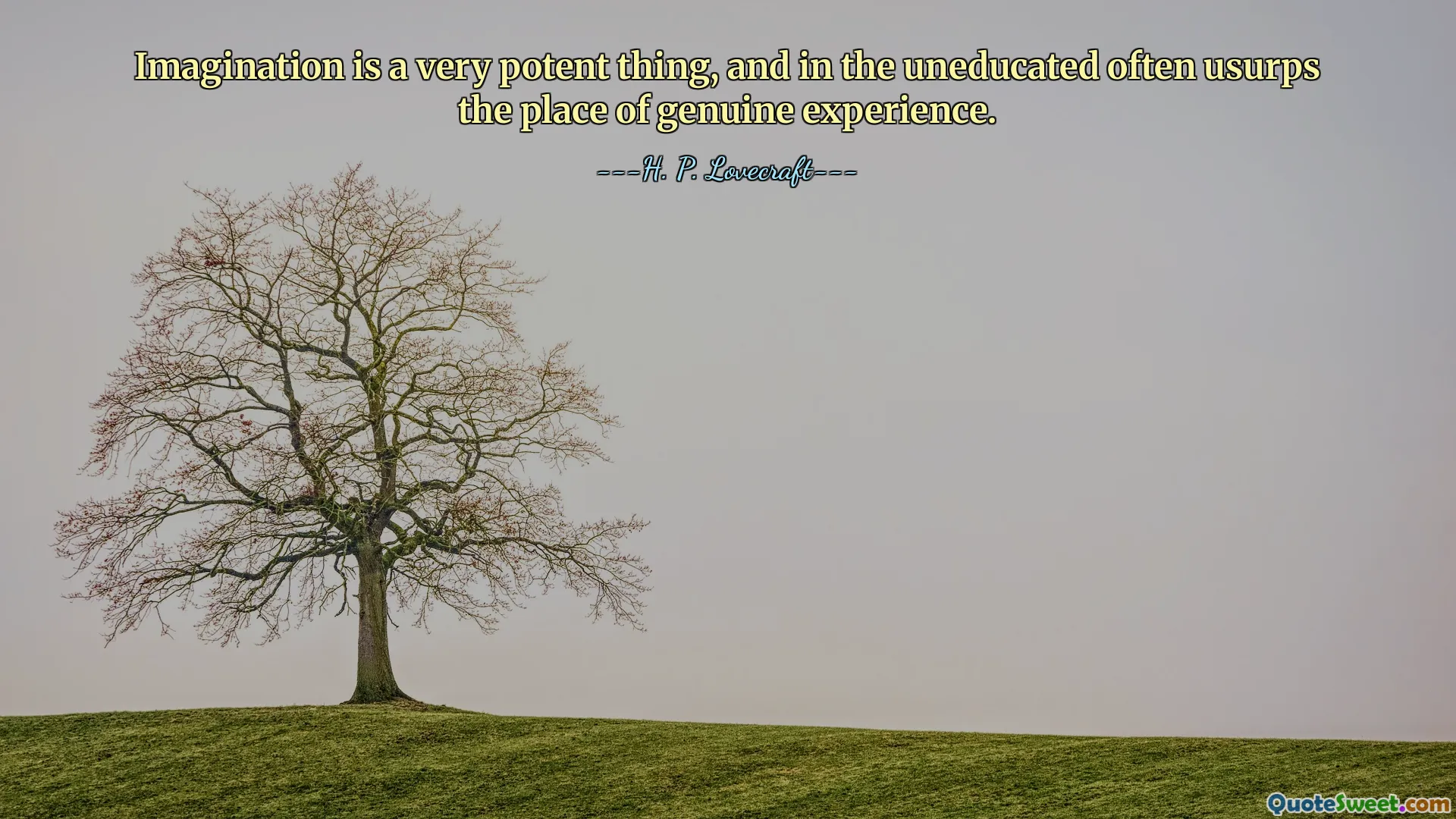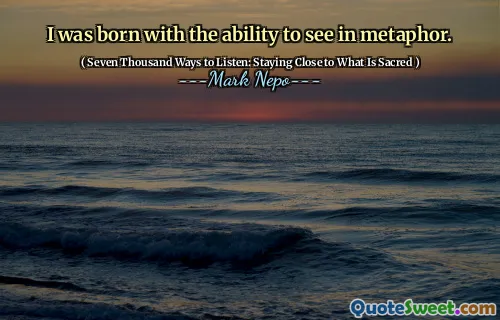
Imagination is a very potent thing, and in the uneducated often usurps the place of genuine experience.
Imagination serves as a double-edged sword in the realm of human development. While it fuels creativity, innovation, and the exploration of new ideas, it can also lead to misconceptions and misguided beliefs, especially when ungrounded in real-world experience. The quote highlights a crucial distinction between imagining possibilities and possessing genuine knowledge acquired through education and firsthand experience. When individuals lack proper understanding or exposure to actual phenomena, they often fill the gaps with their imagination, sometimes giving it undue precedence. This can result in a distorted view of reality, where assumptions and fantasies outweigh facts. For society, this underscores the importance of education and experiential learning as foundations for informed judgment and decision-making. Without these, the danger exists that unchecked imagination might influence perceptions and choices, leading to misconceptions. Conversely, imagination driven by knowledge tends to inspire progress rather than mislead. It’s essential to cultivate a balance: fostering imagination while grounding it in experience and understanding. This balance ensures that creative thought complements reality rather than replaces it. Sir Arthur Conan Doyle once said, “Education never ends, Watson,” emphasizing lifelong learning as a way to keep imagination aligned with truth. Ultimately, the quote reminds us of the need to pursue education and experience as a way to anchor our creative faculties and prevent them from drifting into the realm of fanciful illusion, which, if unchecked, may hinder genuine progress and the pursuit of truth.







